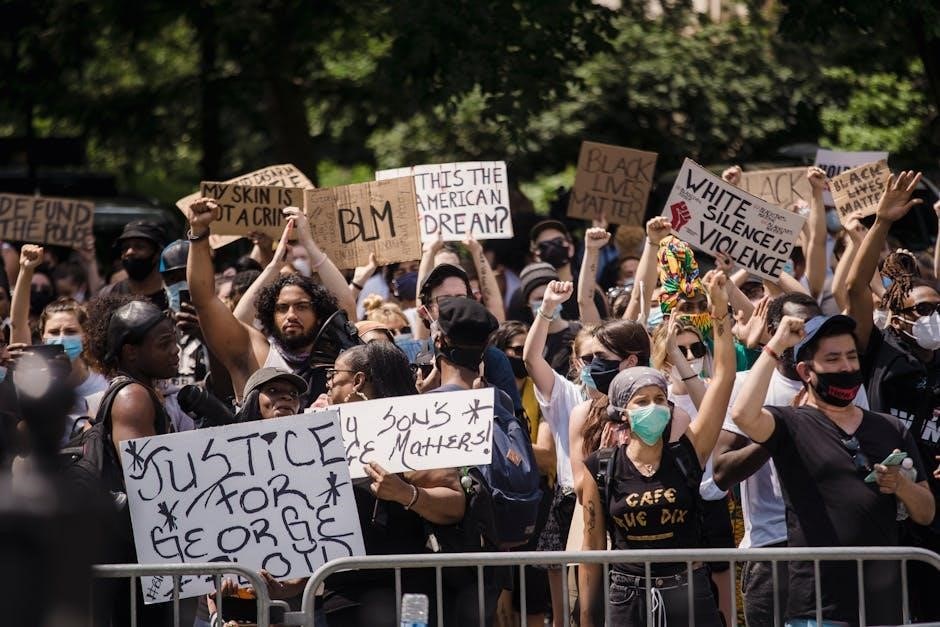
omi and winant racial formation in the united states pdf
Background Information on Michael Omi and Howard Winant
Michael Omi is a professor of ethnic studies, sociology, and gender and women’s studies at the University of California, Berkeley, with a strong background in researching racial formation․ He has served as associate director of the Haas Institute for a Fair and Inclusive Society, showcasing his expertise in the field․ Howard Winant is also a renowned scholar, and together they have co-authored the book Racial Formation in the United States, which has become a classic in the field of racial studies․ Their work has been widely acclaimed and has contributed significantly to the understanding of racial formation in the United States․ With their extensive knowledge and experience, Omi and Winant have been able to provide insightful analysis of the complex issues surrounding racial formation, making their work a valuable resource for scholars and researchers․ Their collaboration has resulted in a comprehensive understanding of the topic․

The Theory of Racial Formation
Rethinking Race as Intersectional, Ubiquitous, and Unstable
Omi and Winant’s work rethinks race as a complex and multifaceted concept, emphasizing its intersectional, ubiquitous, and unstable nature․ They argue that race is not a fixed or essential category, but rather a dynamic and constantly shifting construct that is shaped by social, economic, and cultural forces․ This perspective recognizes that race is not isolated from other forms of identity, such as class, gender, and nationality, but rather intersects and intersects with them in complex ways․ By examining the ways in which race is constructed and reconstructed over time, Omi and Winant’s theory provides a nuanced understanding of the ways in which race shapes and is shaped by social life․ Their work has been influential in shaping the field of racial studies and continues to be widely read and studied today, with its ideas and concepts remaining highly relevant to contemporary debates and discussions about race and identity․
Racial Politics and the Racial State
The Great Transformation and Racial Reaction
The transformation is characterized by a shift from a rigid, essentialized understanding of race to a more fluid and nuanced one, with a focus on intersectionality and contextualization, as discussed in the pdf․
This transformation has been met with racial reaction, as some individuals and groups resist and push back against the changing racial landscape, often using strategies of containment and rearticulation, as examined by Omi and Winant․
The interplay between transformation and reaction is complex and multifaceted, involving a range of social, economic, and cultural factors, and is a key area of study in the field of racial formation, as outlined in the pdf by Omi and Winant․
By examining this interplay, researchers can gain a deeper understanding of the ways in which race is constructed and contested in the United States, and how it shapes and is shaped by social and political institutions, as discussed in the pdf․
Overall, the great transformation and racial reaction are critical components of Omi and Winant’s theory, and are essential for understanding the complexities of racial formation in the United States, as outlined in the pdf․ The pdf provides a comprehensive overview of the great transformation and racial reaction, and is a valuable resource for researchers and scholars in the field, as it offers a detailed and nuanced analysis of these complex and multifaceted concepts․

Colorblindness, Neoliberalism, and Obama
The Contrarieties of Race
Race is a social construct, yet it has real-world consequences and implications for individuals and groups, shaping their experiences and opportunities, as noted in the book, which examines the intersection of race with other social factors․

Case Studies and Examples
The Case of Susie Guillory Phipps
